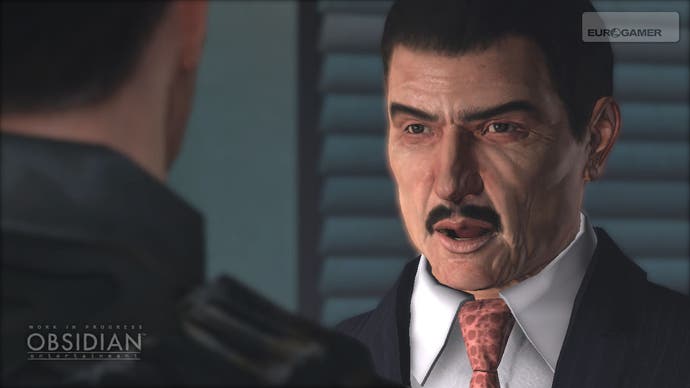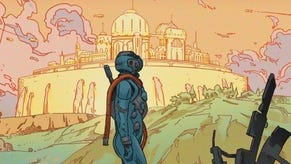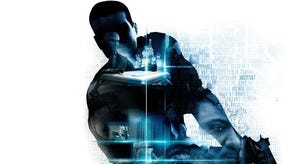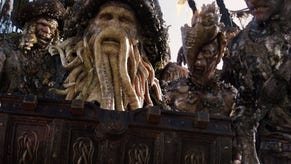Alpha Protocol
Obsidian's Chris Avellone breaks cover.
Always the bridesmaid, never the bride. That's how it sometimes looks for good old Obsidian Entertainment, famous followers-up of BioWare's Knights of the Old Republic and Neverwinter Nights games. But it's not exactly a bad deal. Who wouldn't want to work on Fallout: New Vegas, for example? Er, apart from Bethesda Softworks.
For all its work with other people's IP, however, it's the SEGA-published Alpha Protocol, a role-playing spy-game due out this October, that looks like one of the most interesting games on the Californian developer's slate at the moment. As you'll know if you read our recent preview, it's a bit like James Bond with dialogue trees and moral dilemmas. Or at least it says it is. We caught up with and waterboarded lead designer Chris Avellone recently and he was able to clarify.
I understand the challenge that Dragon Age had, because they had an entire world to present. What we decided to do with Alpha Protocol was just choose three locations that felt exotic, like Taipei or Rome - areas that we felt had a certain history and romance about them, and also seemed to be very focused towards the espionage genre, as a lot of drama and intrigue can be combined into those locations.
Regarding BioWare having team members read pages and pages of source material: we took a slightly different approach to communicating the storyline and location to team members. What we did was we made the game much more location and personality based, and then we made sure we introduced the 20 core characters the player meets over the course of the game and made that the focus of the presentation. We just sat down with the entire team for about an hour with PowerPoint and ran through the character cast-list, how they interact with the player, what the player's motivation was and then they would ask a lot of questions until they had a feel for the story.

We wanted to keep the cast list much smaller than our previous games, so you can have more interactivity with them. The basis of the relationships in the game was also more spy-focused. What I mean by that is in previous games, like Knights of the Old Republic II, the morality scale and the interaction with the characters in that game was very much geared towards the campaign world, in the sense that you have the Light Side, Dark Side, it's very black and white. In the espionage and covert-ops genre things are a lot more complicated, and it's much more about how much you trust and respect the other person and what the methods of the other person are and how you feel about that.
To give that more clarity: the way we have it set up is that you can build a reputation level with the characters in this game that runs the range from animosity to friendship or respect, and each of those ranges will give you different bonuses. So actually there will be instances where having someone furious at you and hating your guts can work to your advantage.
You will have an opportunity over the course of the game to team up with some of the characters both physically in missions and also as handlers over your ear-piece. And by that I mean, depending on your relationships with some of the characters in the game, you can actually switch off the person who is talking to you over the radio and they will give you different advice and objectives in the mission and give it a different personality than with other handlers.









